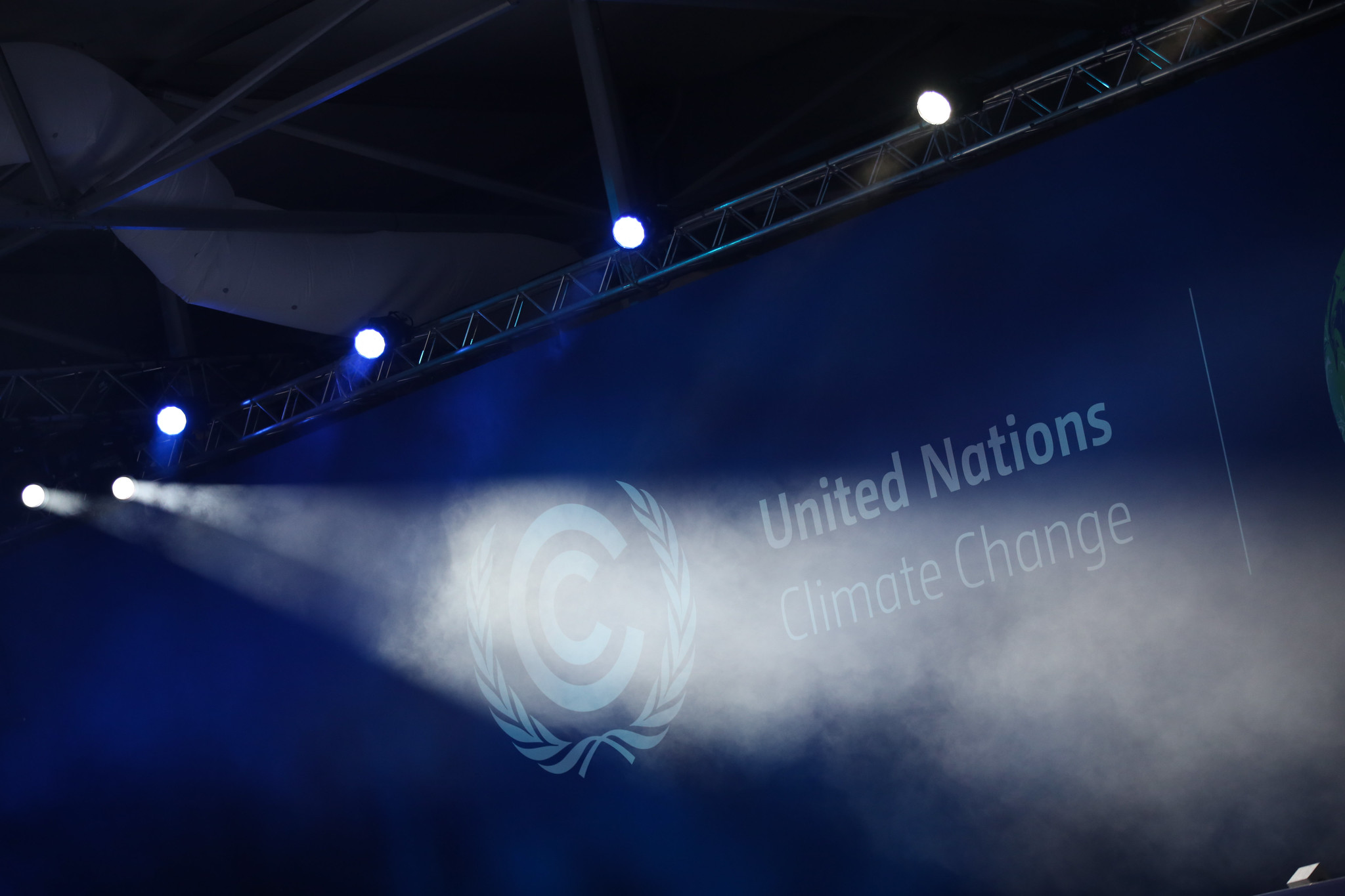The meaning of acronyms and terms used at COP26
Despontam com a COP26, mas devem se popularizar diante de um tempo de emergência climática

COPs acontecem todos os anos, mas a pandemia ditou o adiamento da COP26 por um ano (Kiara Worth/UNFCCC)
G20, IPCC, ESG… It was enough to have the 26th Conference on Climate Changes to start, to have acronyms pop up in news and timelines. We reproduce here an UN guide that clarifies what they mean, as well as the more prevalent terms used. They popped up with COP26, but they will become popular face the climate emergency times we are experiencing.
COP26
Is the acronym for the 26th UN Conference on Climate Changes, but officially is the 26th Conference of the Parties (or COP) of the UN Convention for Climate changes, UNFCCC. Explaining better, Unfccc has been created after the UN Conference on Environment and Development that took place in Rio de Janeiro in 1992. The event was also known as Earth Summit. The goal declared by Unfccc was to reduce the effect of greenhouse gases, to avoid the threatening climate changes caused by humans. The Conferences of the Parties, or COPs are the name of the formal meetings that take place every year since 1995, with exception of 2020: the pandemic dictated the postponement of COP26 in one year.
ODSs
SDS are the 17 Sustainable Development Goals which are interlinked. The focus of the global agenda is to approach the present challenges that range from the access to clean energy to the reduction of poverty and responsible consumption. The set of goals, or SDGs make the 2030 Agenda for Sustainable Development, the UN strategy to promote peace and prosperity for people and our planet. It is becoming ever more obvious that climate change influences many, or all SDG, and that it will be impossible to reach 2030 Agenda without serious inroads into fighting the problem.
NDC
NDC means Nationally Determined Contributions, which means the plan we expect that each country will prepare to reduce the amount of greenhouse gases. Practically all nations have agreed to carry out these plans in 2015 at COP21 in Paris, in what became known as the Paris Agreement.
However, these announcements were not sufficient to keep global warming at less than 2oC above pre-industrial levels, so that this year the countries had to return to the negotiations table with new and improved commitments. We will have to wait to see if these measures will be sufficient.
1,5 °C
Much will be heard about the “1,5oC goal” during the COP. In a UN report dated of 2018, thousands of scientists and government analysts agreed that limiting the increase of global temperature to no more than 1.5oC above pre-industrial levels would help humankind to avoid the worst climate impacts and keep a livable environment
More recent data reveal that the world warmed between 1.06 – 1,26oC above pre-industrial levels (between 1890-19000. The present growth path of carbon dioxide emissions may increase global temperatures in up to 4.4oC until the end of the century. Such warming would lead to a “climate catastrophe” as the UN general secretary warned, t
he effect is “a possible collapse of ecosystems and the life as we know it today”
Ipcc
O Painel Intergovernamental sobre Mudança Climática, Ipcc, é o órgão das Nações Unidas para avaliar a ciência relacionada à mudança climática. Criado em 1988 pela Organização Meteorológica Mundial, OMM, e pelo Programa das Nações Unidas para o Meio Ambiente, Pnuma, o objetivo do Ipcc é fornecer aos governos em todos os níveis informações científicas que possam usar para desenvolver políticas climáticas.
As publicações do Ipcc também são uma contribuição importante para as negociações internacionais sobre mudança climática que acontecerão durante a COP26. Um importante relatório do grupo de trabalho, divulgado em agosto, foi descrito pelo chefe da ONU, António Guterres, como um “código vermelho para a humanidade”.
Sids
The small insular developing states are a different group of 58 insular nations that are highly vulnerable and frequently affected by climate changes and extreme climate conditions such as the increase and severity of cyclones, tempests, heavy rain, droughts, increase of sea levels and acidification of oceans.
During the last week of the UN General High-Level Meetings, leaders from Sid: Fiji, Tuvalu and Maldives, occupied the stage stating that their nations are suffering an existential threat if rich countries do not fulfill their promises of changing global warming trends.
Climate Finances
In general terms, climate financing means the money that must be spent in a large range of activities that will contribute to decrease the speed of climate changes and that will help the world to reach the goal of limiting global warmth to no more that 1.5oC above pre-industrial levels.
It may involve local or transnational financing, that may be obtained from public, private or alternative financing sources. Climate financing is fundamental to deal with climate changes for large scale investments are needed to significantly reduce emissions, mainly in sectors that issue large amounts of greenhouse gases into the atmosphere.
In 2009, during COP15 in Copenhagen, rich nations promised to raise US$100 billion/year for poorer nations until 2020 to help them to adapt to climate changes and to mitigate new temperature increases. The promise has not yet been fulfilled, and therefore, climate financing will be one of the most important issues of discussion during COP26.
ESG
Linked to climate financing is ESG, which means environmental investment and governance, also known as sustainable investment.
Sustainable investment is promoted by the Principles for Responsible Investments Association, PRI, an entity supported by the UN, that aims to create sustainable markets that will contribute to a prosperous world for all.
One of the COP26 goals is to bring more companies into ESG and to accelerate transition for a fairer global economy.
SBTi
Means Science Based Target Initiative, supported by UN. The companies which adhere to the initiative establish emission reduction goals based on science, and therefore are better equipped to face climate changes and become more competitive in the transition to a zero emissions economy.
The establishment of goals based on science became a standard commercial practice and companies are performing an important role in the reduction of global emissions of greenhouse gases and in the support of implementation of commitments in the country.

Países devem intensificar investimentos na transição para economia com zero emissões (Banco Mundial/Jutta Benzenberg)
Nature based solutions
Nature based solutions are actions to protect, sustainably manage and restore natural and modified ecosystems that are related to social challenges in an effective and adaptative manner, simultaneously yielding benefits to human well-being and to biodiversity.
Nature Based Solutions are an essential part of global efforts to reach the Paris Agreement goals on Climate Changes: are a vital complement for decarbonization, reducing risks of climate changes and establishing societies resilient to climate. Examples include large scale tree planting programs, that will absorb carbon yielding protection against large scale rainfalls and reconstruction of mangroves that make efficient and cheap natural barriers against coastal floods and erosion.
G20
The group of the 20 nations is an intergovernmental forum that encompasses the largest world economies: 19 nations and European Union. The group works to address main issues related to global economy, such as international financial stability, mitigation of climate changes and sustainable development.
The UN general secretary clearly stated that climate actions are to be leaded by G20 countries, which collectively answer for 90% of world’s gross income, 75-80% of international trade and 2/3 of the world’s population.
The Group’s commitment during COP26 is crucial to contain greenhouse gases and contain climate changes.
AGN
The African Group on Negotiations on Climate Changes (AGN) was created at COP1 in Berlin, Germany, in 1995, as an alliance of the African member-states that represent the interests of the region at international negotiations on climate changes, with a common and unified voice.
Aacg
Outside formal intergovernmental negotiations, countries, cities and regions, companies, and members of civil societies all round the world are taking climate mitigation measures.
The Agenda for Global Climate Actions, Agca, formerly known as the Paris Clima Action Agenda, was launched to stimulate quick climate actions, boost cooperation among governments, local authorities, entrepreneurial communities, investors, and social societies to support the adoption and implementation of the Paris Agreement.
Agca catalyzed actions and commitments of multiple interested parties to build resilient and sustainable societies at local, regional and global levels.
Presently the initiative is made up of 77 coalitions, involves over 7,000 cities and local governments and 2,000 private sector companies from over 180 countries and helps to implement novel and sustainable actions all over the world.
Reproduction: UN News
@MidiaNinja and @CasaNinjaAmazonia carry a special coverage of COP26. Follow tag #ninjanacop in networks!
Translated from Portuguese into English by Ana Ruth Kleinberger, Catálogo de Tradutores


